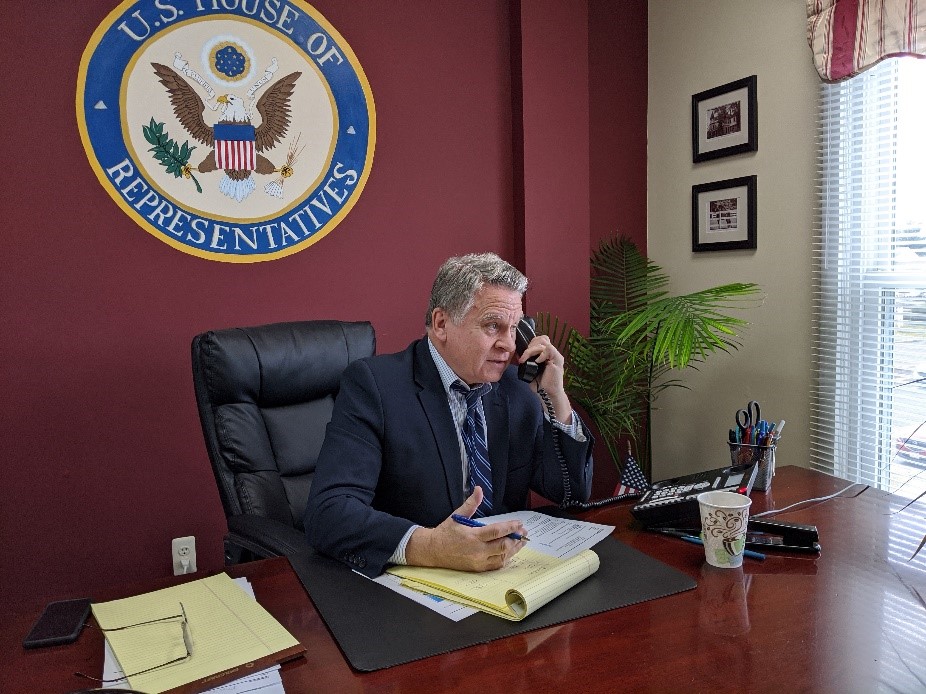Smith: New Jersey to Receive $1.7B in CARES Act Emergency Funding to Shore Up Mass Transit

New Jersey to Receive $1.7B in CARES Act Emergency Funding to Shore Up Mass Transit
HAMILTON, NJ – More than $1.7 billion in emergency funding was awarded Thursday by the Federal Transit Administration (FTA) to the State of New Jersey to help the public transit system weather the economic upheaval caused by the coronavirus pandemic, said Rep. Chris Smith (R-NJ), who supported multiple efforts to include transit system support in Congress’ response to the COVID-19 outbreak.
“This emergency funding can be used to help NJ Transit get through the ongoing coronavirus turmoil and help pay for the most basic costs to operate, maintain and run our public transportation system,” said Smith, whose district includes the Hamilton Transit Station and the NJ Transit North Jersey Coast Line that runs from Bayhead, Ocean County through Monmouth County northward, and other rail lines and facilities used by commuters. “That includes such expenses such as driver salaries, fuel, personal protective equipment and cleaning supplies. Mass transit is an integral and crucial component of our state economy, and will be an important part of the recovery for working families, travelers and general business activity. We will get through the current crisis and when we do, public transportation will be at the forefront.”
The funding, which requires no local matching cost-share, comes from the $2 trillion stimulus bill Smith supported to help communities devastated by the coronavirus pandemic, and passed by the House and signed into law by President Trump last Friday, March 27, called the Coronavirus Aid, Relief, and Economic Security (CARES) Act.
The CARES Act directs the FTA to allocate funding to prevent, prepare for, and respond to the coronavirus through the existing Urbanized Area Formula Grants Program. The State of New Jersey will receive a total of $1,758,430,844.
The normal state-federal cost-share is not applicable under the CARES Act for expenses incurred beginning Jan. 20, so no local match is required. By law, governors, through the state Department of Transportation, distribute FTA formula funds among recipients. Operating expenses to maintain transit services as well as pay for administrative leave for transit personnel due to reduced operations during the emergency are eligible uses for the funding.
Smith signed multiple letters urging congressional leadership to include assistance in the CARES Act for public transit systems and their workers, including a bipartisan letter led by Rep. Albio Sires (D-NJ) that focused on the needs of NJ Transit; a letter on March 22, 2020 supporting funding for Amtrak, and; a third letter supporting the mass transit workforce.
The CARES Act is Phase III of the federal response. Smith supported Phase I, the Coronavirus Preparedness and Response Supplemental Appropriations Act, 2020—which provided $8.3 billion for treatment and prevention measures, as well as Phase II, the Families First Coronavirus Response Act—which provided paid sick leave, family medical leave, free testing, and expanded unemployment benefits among other provisions to help working Americans. The CARES Act is also providing direct financial assistance of $1,200 for individuals making under $75,000 per year, $150 billion to assist state and local governments, and $600 extra per week and an extension of unemployment benefits for four months.





